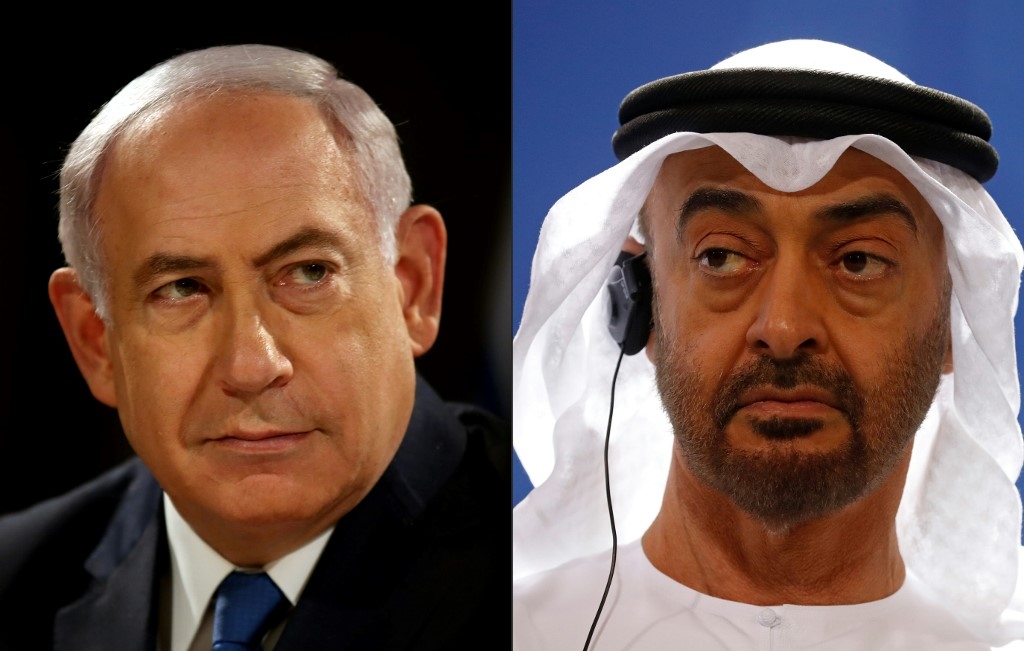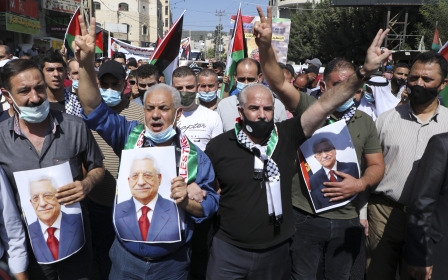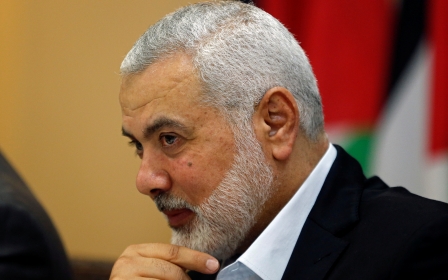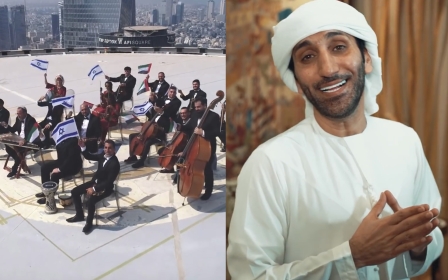Israel's cabinet approves normalisation deals ahead of visits to UAE, Bahrain

The Israeli cabinet approved on Monday the Abraham Accords, the normalisation deal signed by the United Arab Emirates, Bahrain and Israel on 15 September in Washington, DC.
Israeli Prime Minister Benjamin Netanyahu said that he had spoken to Sheikh Mohammed bin Zayed, Abu Dhabi’s crown prince on Monday, and that they had agreed to meet soon, without specifying a date.
“At the weekend, I spoke with my friend, the crown prince ... and invited him to visit Israel,” Netanyahu said. “We spoke about cooperation that we are promoting in investment, tourism, energy, technology and other spheres.
"He invited me to visit Abu Dhabi. But first, we will see a UAE delegation here and another one of our delegations will go there," Netanyahu added.
In a tweet on Monday, bin Zayed said that he and Netanyahu "discussed strengthening bilateral ties and examined prospects for peace and the need for stability, cooperation and development in the region”.
A source familiar with the planned visit told Reuters that an Israeli delegation, accompanied by US officials, will fly on 18 October to Bahrain, and the next day to UAE. On 20 October, the delegation will return to Israel accompanied by an Emirati team.
Israel, UAE and Bahrain signed a US-sponsored normalisation agreement on 15 September in the White House, affirming their diplomatic and security ties in the public domain.
The controversial normalisation agreements, known as the Abraham Accords, do not mention a Palestinian state nor a two-state solution, which have been considered a cornerstone of diplomacy dealing with the Palestinian-Israeli conflict. Palestinians have called the normalisation deal an Arab "betrayal" and a "stab in the back".
Israel, Bahrain and the UAE all view Iran as a common enemy. Since the signing of the agreement, a number of collaborations between Israel and UAE have been announced, including in music and commerce.
Last week, Israel and the UAE foreign ministers met in Berlin, the first in-person meeting between the counterparts, and held a ceremony at the Holocaust Memorial and visited the Holocaust museum.
Middle East Eye propose une couverture et une analyse indépendantes et incomparables du Moyen-Orient, de l’Afrique du Nord et d’autres régions du monde. Pour en savoir plus sur la reprise de ce contenu et les frais qui s’appliquent, veuillez remplir ce formulaire [en anglais]. Pour en savoir plus sur MEE, cliquez ici [en anglais].




